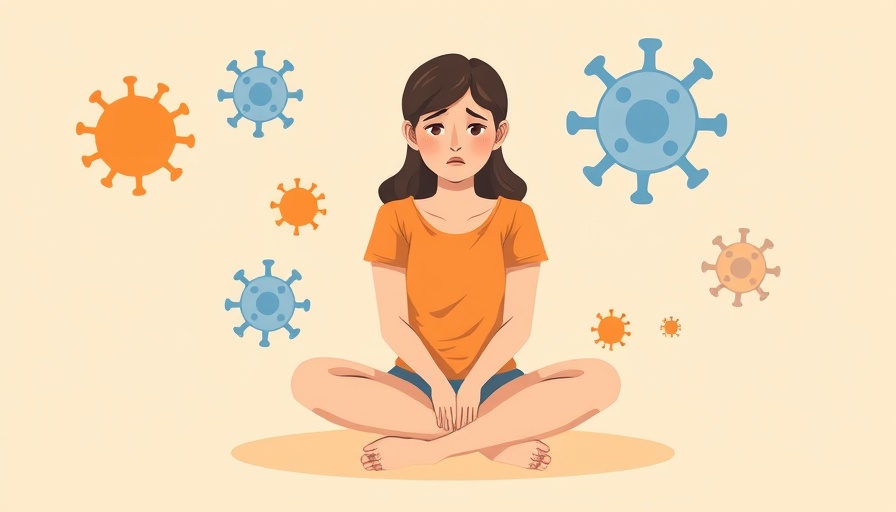
Understanding Insomnia: More Than Just Sleepless Nights
Insomnia affects nearly one in ten adults, impacting their physical and mental health profoundly. This sleep disorder isn’t just about feeling tired; it can disrupt your entire day, making it hard to concentrate, stay positive, or even function well at work or school. For teachers and parents, this can lead to additional challenges as they navigate the complexities of adolescents dealing with unmet sleep needs or mood issues related to lack of rest.
Exploring Treatment Alternatives: Beyond CBTi
Traditional treatments often revolve around cognitive behavioral therapy for insomnia (CBTi), which helps individuals reshape negative beliefs about sleep. However, it may not be a perfect fit for everyone. The recent study by Rafihi-Ferreira and colleagues opens up a conversation about Acceptance and Commitment Therapy (ACT) as a potential alternative. Through ACT, which emphasizes mindfulness and psychological flexibility, individuals may find a different pathway to improved sleep without some of the limitations posed by CBTi.
What the New Study Tells Us
In a recent randomized controlled trial, researchers compared the effects of ACT with CBTi and a waitlist control group. They focused on 227 adults struggling with chronic insomnia. Results from measures like the Insomnia Severity Index indicated promise for ACT, suggesting that it might cater effectively to those who find it challenging to implement strict behavioral changes advised by CBTi.
Insights into Sleep Disruption: Impacts on Mental Health
Struggles with insomnia are often intertwined with deeper issues like anxiety and depression. According to mental health professionals, untreated insomnia can exacerbate symptoms of these conditions. This relationship underscores the importance of addressing sleep challenges promptly, as doing so can lead to better overall mental health outcomes. With ACT potentially offering a more accessible solution, caregivers and therapists can assess this method for patients who may not find success with traditional treatments.
Community Responses: Navigating the Treatment Landscape
Efforts to improve insomnia treatments also involve community-based mental health approaches, especially in areas with limited access to healthcare. Integrating strategies like ACT into existing mental health services could potentially bridge gaps in treatment availability. Parents and educators may also collaborate to support young people in managing stressors that impact their sleep hygiene.
Embracing New Perspectives on Therapy
As we explore new treatments like ACT, it’s crucial to continue the conversation about mental health awareness, stigma reduction, and the need for accessible resources. Schools could implement mindfulness programs while workplaces might consider Employee Assistance Programs (EAPs) to offer mental health support, acknowledging that mental wellness is a shared responsibility.
Final Thoughts and Next Steps
Insomnia is an issue that stretches far beyond sleepless nights; it's tied to the fabric of our mental health and well-being. For anyone struggling with insomnia, it might be worth considering various treatment options, including ACT, in consultation with a mental health professional.
Understanding that effective treatment is within reach empowers both individuals and communities to advocate for mental health resources actively. If you or someone you care about is affected by insomnia, don't hesitate to explore these new findings and discuss them with a healthcare provider.
 Add Row
Add Row  Add
Add 




Write A Comment